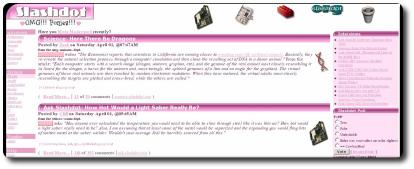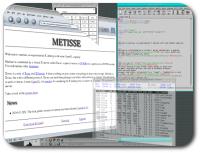MSN Strategic Deceit Conceals Truth
The magnitude of mind games has reached detrimental level. Microsoft have become overly obsessed with Google and they come up with deceiving public statements. Here’s one:
Ballmer said Thursday he doesn’t think the company is lagging its competitors, noting that Microsoft has strong technical expertise and a loyal online user base with products like its MSN Messenger.
Here’s another one (from Gates):
Bill Gates has promised to keep Google “honest” by pushing the internet rival to “to better” despite coming late to the internet services market with an unfinished offering.
And yet, most recent figures show:
MSN’s search market share dropped from 14 percent to 11 percent
Google and Yahoo increased their market share in the online search arena as Microsoft’s MSN slipped, according to Web research firm Nielsen//NetRatings.
Moreover, on a separate and important Web services front:
But Microsoft is shying away from the 10-year-old name and hoping to freshen up its image as services such as Google’s Gmail creep up on its market share.
In short, Google mail’s annual growth stands at 114%; Hotmail, despite expansion of the Net, only grew by 16% in the same period.






 Filed under:
Filed under: 
 N intersting article over at the BBC speaks about
N intersting article over at the BBC speaks about 

 MAGINE to yourself a world (or a desktop environment rather) where everything lies in 3-D space. Imagine interaction with objects, which takes into account the
MAGINE to yourself a world (or a desktop environment rather) where everything lies in 3-D space. Imagine interaction with objects, which takes into account the 

 AVE you ever thought of an (electronic) article that you once saw or read? Could you find it easily after a few weeks, months, or years? How about if you bookmarked it? Would it always allow the article to be found again? And if so, how quickly can it be found?
AVE you ever thought of an (electronic) article that you once saw or read? Could you find it easily after a few weeks, months, or years? How about if you bookmarked it? Would it always allow the article to be found again? And if so, how quickly can it be found?